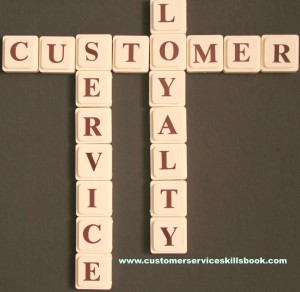Characteristics of Organizations with Strong Customer Service Cultures
Many organizations struggle to gain and maintain strong customer and brand loyalty. However, what they often fail to do right is to create a service culture that nurtures and supports customers.
The following are some common characteristics for leading-edge customer-focused organizations that you might use to help create a positive customer service culture in your own organization.
- They have and support internal customers (for example, peers, co-workers, bosses, subordinates, people from other areas of their organization) and/or external customers (for example, vendors, suppliers, various telephone callers, walk-in customers, other organizations, others not from within the organization).
- Their focus is on determining and meeting the needs, wants and expectations of customers while treating everyone with respect and as if he or she is special.
- Information, products, and services are easily accessible by customers.
- Policies are in place to allow employees to make decisions in order to better serve customers.
- Management and systems support and appropriately reward employee efforts to serve customers.
- Reevaluation and quantitative measurement of the way business is conducted is ongoing and results in necessary changes and upgrades to deliver timely quality service to the customer.
- Continual benchmarking or comparison with competitors and related organizations helps maintain an acute awareness and implementation of best service practices by the organization.
- The latest technology is used to connect with and provide service to customers, vendors, or suppliers and to support business operations.
- They build relationships through customer relationship management (CRM) programs.
For additional ideas and strategies for building a strong service culture, get a copy of Customer Service Skills for Success.
About Robert C. Lucas
Bob Lucas has been a trainer, presenter, customer service expert, and adult educator for over four decades. He has written hundreds of articles on training, writing, self-publishing, and workplace learning skills and issues. He is also an award-winning author who has written thirty-seven books on topics such as, writing, relationships, customer service, brain-based learning, and creative training strategies, interpersonal communication, diversity, and supervisory skills. Additionally, he has contributed articles, chapters, and activities to eighteen compilation books. Bob retired from the U.S. Marine Corps in 1991 after twenty-two years of active and reserve service.
Make Money Writing Books: Proven Profit Making Strategies for Authors by Robert W. Lucas at Amazon.com.
The key to successfully making money as an author and/or self-publisher is to brand yourself and your company and to make yourself and your book(s) a household name. Part of this is face-to-face interaction with people at trade shows, library events, book readings, book store signings, blogging or guest blogging on a topic related to their book(s). Another strategy involves writing articles and other materials that show up online and are found when people search for a given topic related to a topic about which the author has written.
If you need help building an author platform, branding yourself and your book(s) or generating recognition for what you do, Make Money Writing Books will help. Bob’s popular book addresses a multitude of ideas and strategies that you can use to help sell more books and create residual and passive income streams. The tips outlined in the book are focused to help authors but apply to virtually any professional trying to increase personal and product recognition and visibility.

